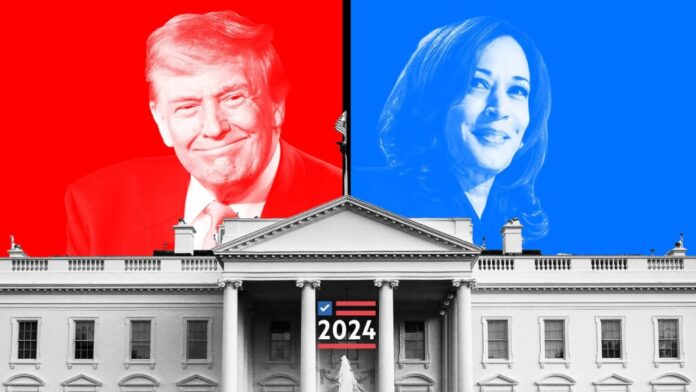The White House race between Vice President Kamala Harris and former President Donald Trump is shaping up to be a tight contest as both candidates approach the November 5 election.
With Joe Biden unexpectedly withdrawing from the race in July and endorsing Kamala Harris, the election has turned into a historic contest between Harris and Donald Trump. Harris’s potential to become the first female president contrasts sharply with Trump’s bid to regain the presidency.
Recent polling data reveals a tight race. A Reuters/Ipsos poll conducted after the September 10 debate shows Harris with a slight edge, leading Trump 47% to 42%. The poll also indicates that 53% of respondents believed Harris won the debate, compared to 24% for Trump. This represents a slight increase from August when Harris led Trump by four points.
Similarly, a YouGov poll found that 55% of debate watchers thought Harris performed better, but overall voter sentiment remained unchanged with Harris leading Trump 46% to 45%. The Morning Consult poll, surveying 3,300 likely voters, gave Harris a more comfortable lead of 50% to Trump’s 45%. Despite Harris’s debate performance, experts note that voter intentions have not shifted significantly, suggesting that many Americans have already made up their minds.
National polling averages show Harris maintaining a narrow lead over Trump. Since Biden’s withdrawal, the race has tightened, with Harris holding a small but steady advantage in polls aggregated by 538. However, the U.S. election is decided by the Electoral College, not the popular vote. Each state’s electoral votes, based on its population, are critical. A candidate needs at least 270 electoral votes to win.
The outcome is expected to hinge on key battleground states such as Pennsylvania, Michigan, and Wisconsin. These states, crucial in past elections, remain highly competitive. Polls show a tight race in these areas, with Pennsylvania being particularly decisive due to its high number of electoral votes.
While Harris currently leads in national polls, analysts caution that these may not fully capture voter sentiment in battleground states. Past elections have shown that polls can underestimate support for candidates. As the race continues, the ability to secure a decisive victory will depend on performance in these critical swing states. The contest remains highly competitive, with the final outcome likely determined by a small number of swing voters in pivotal states.



